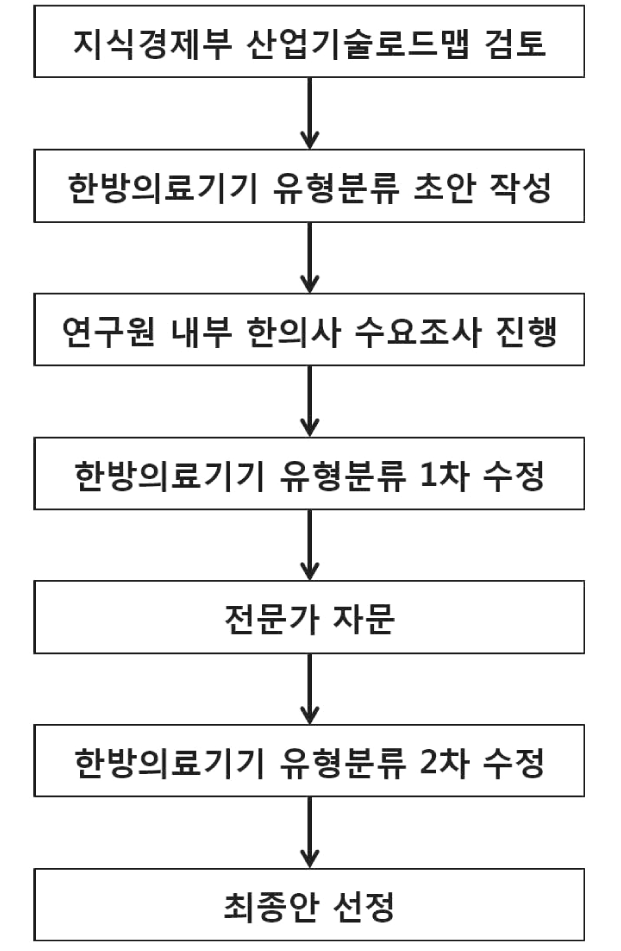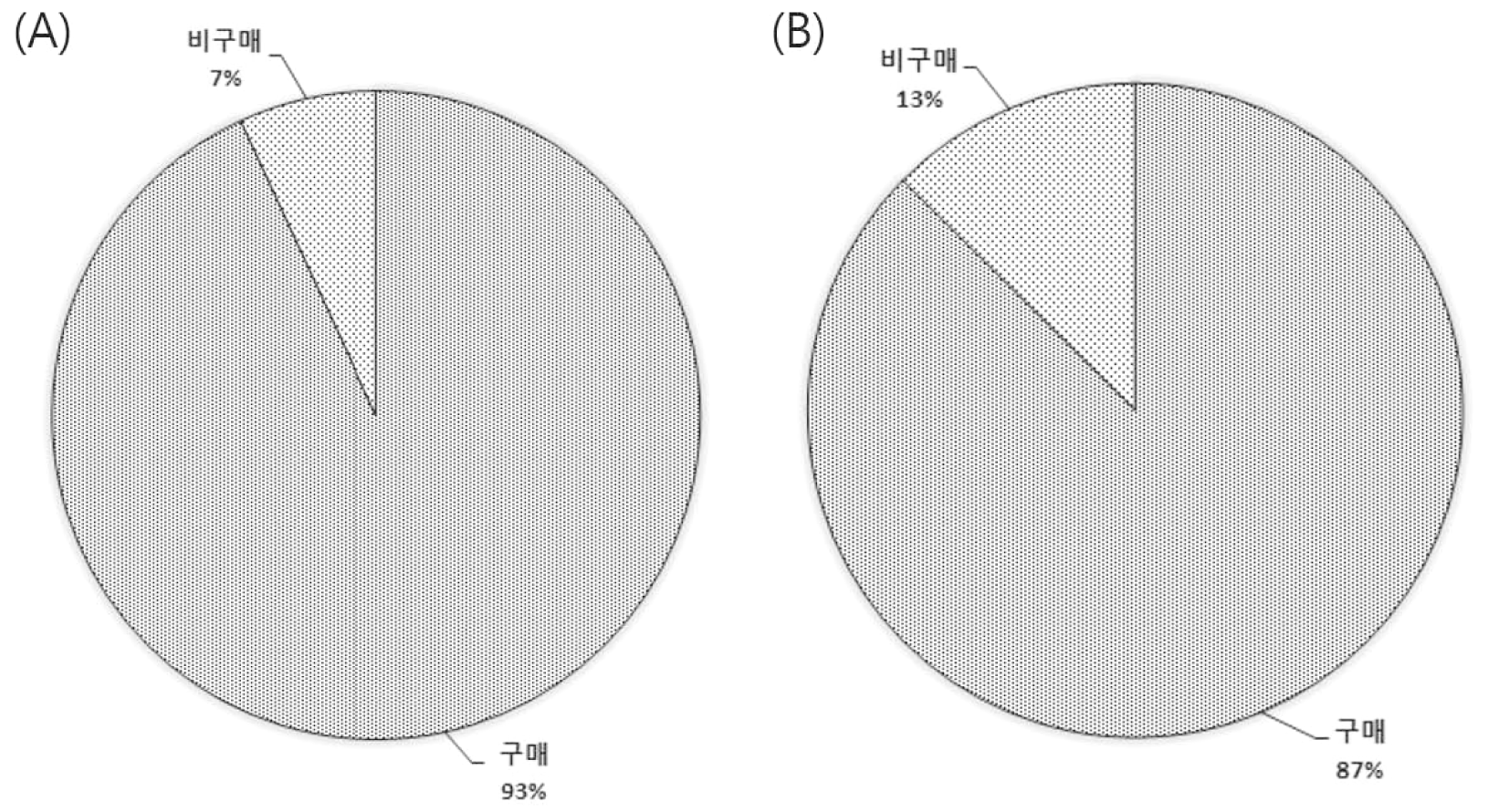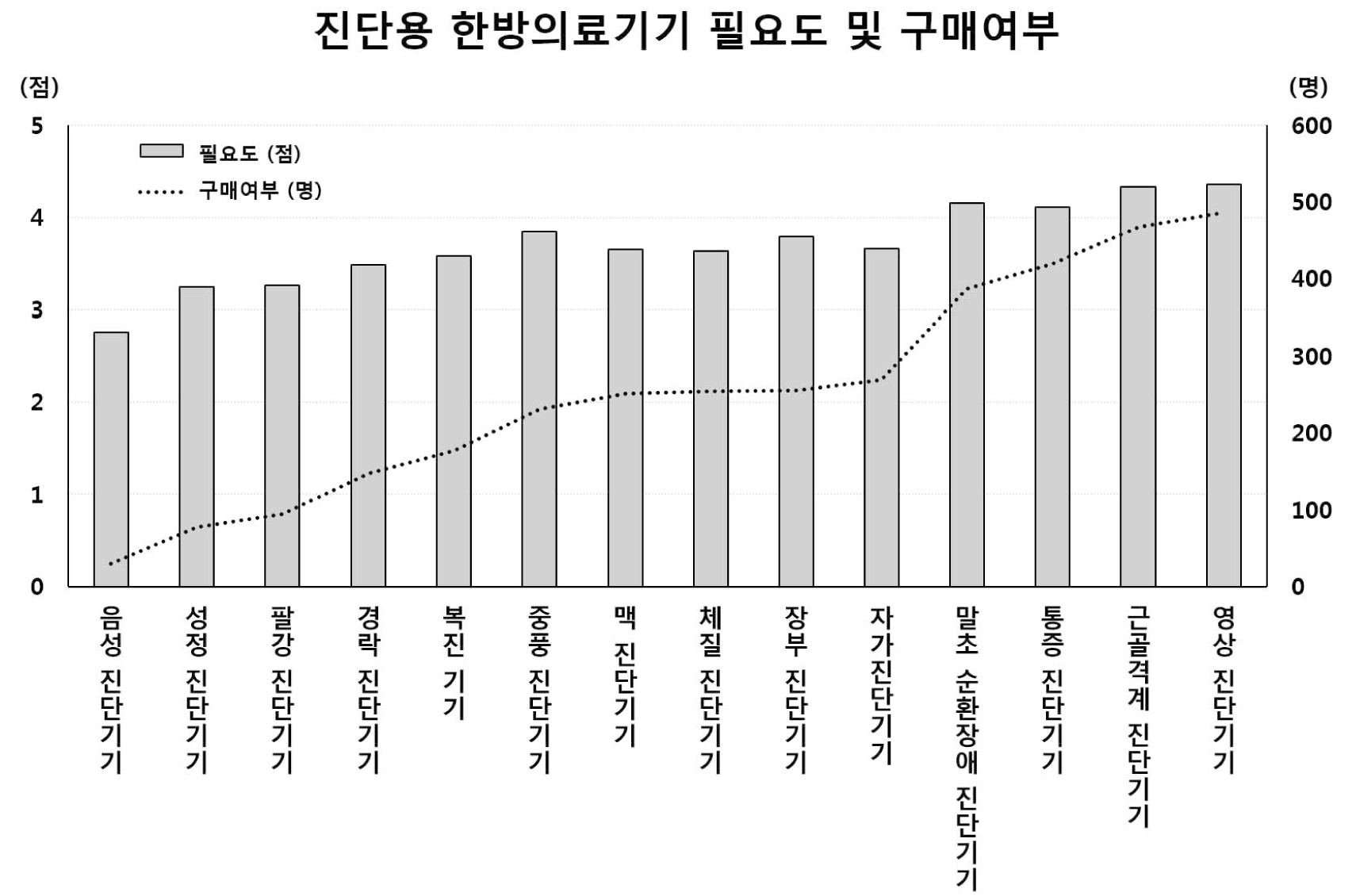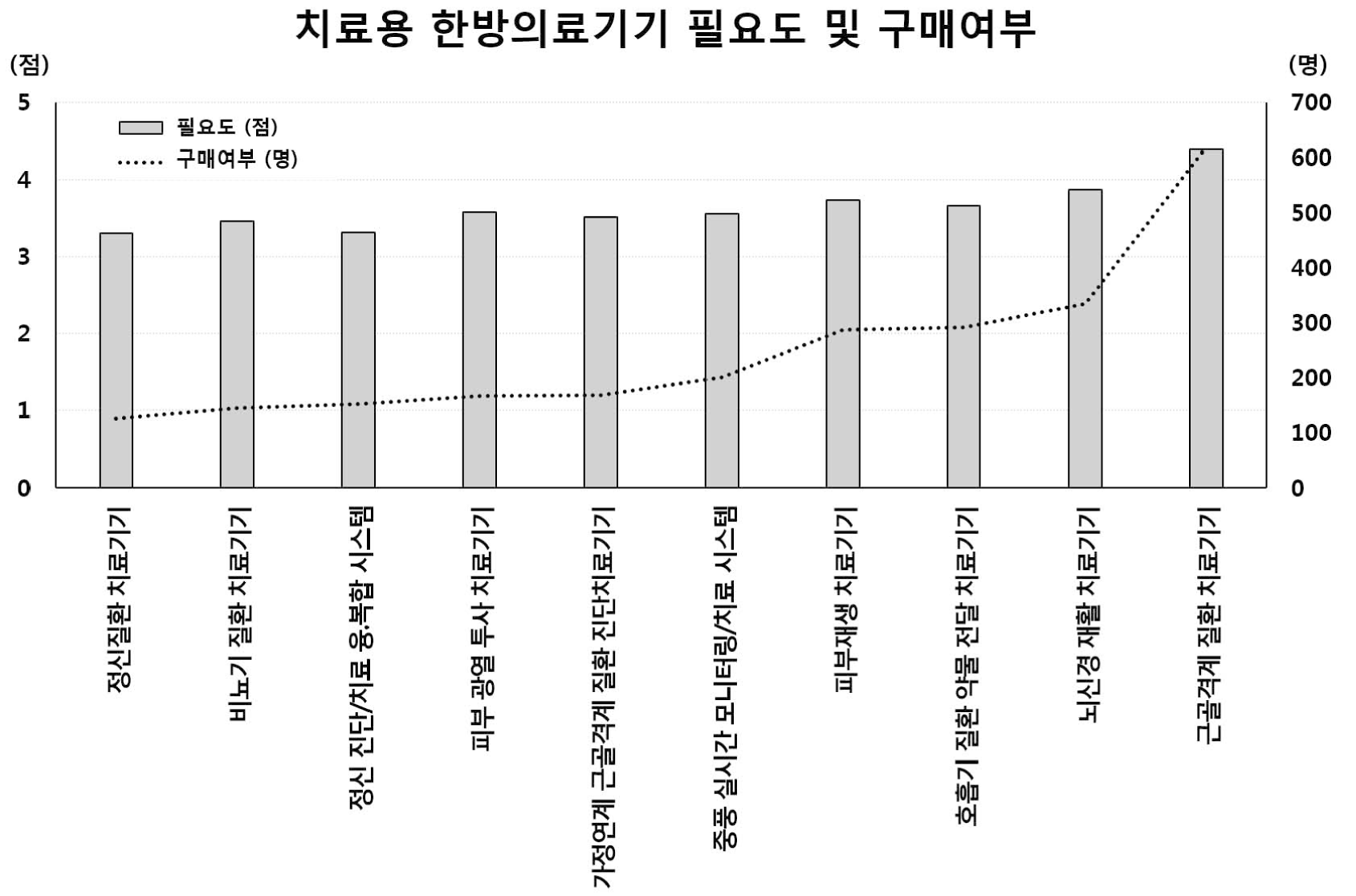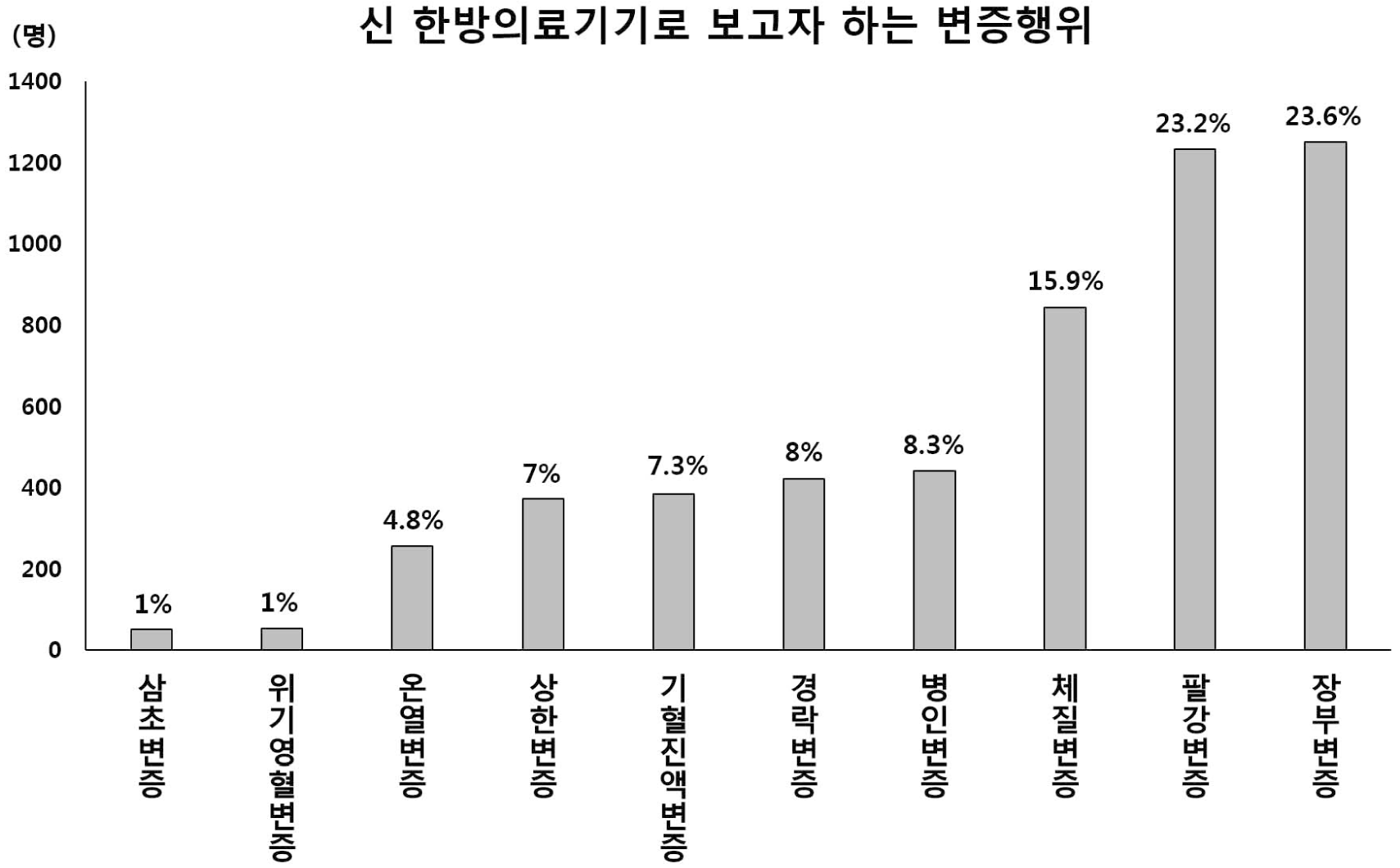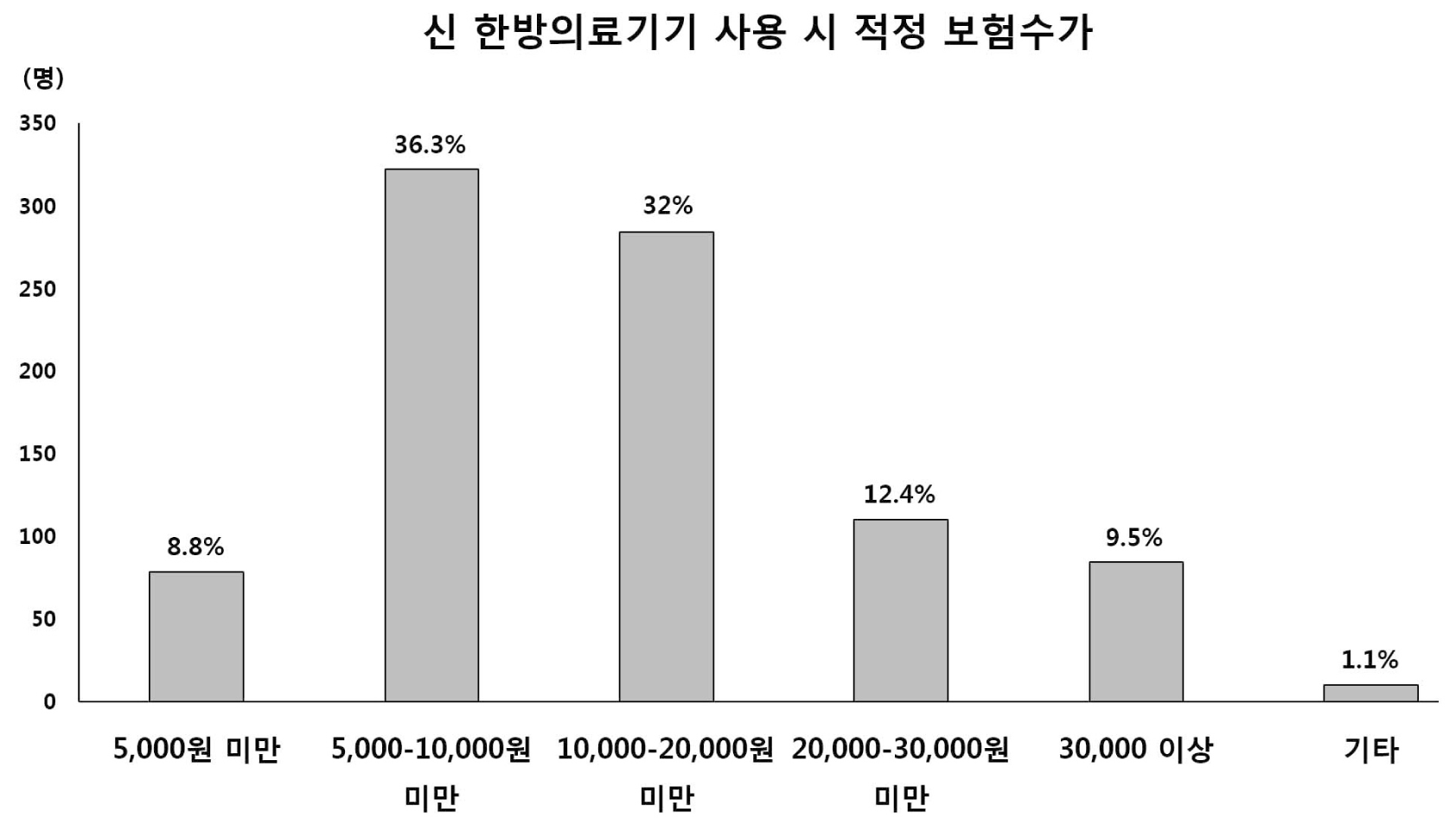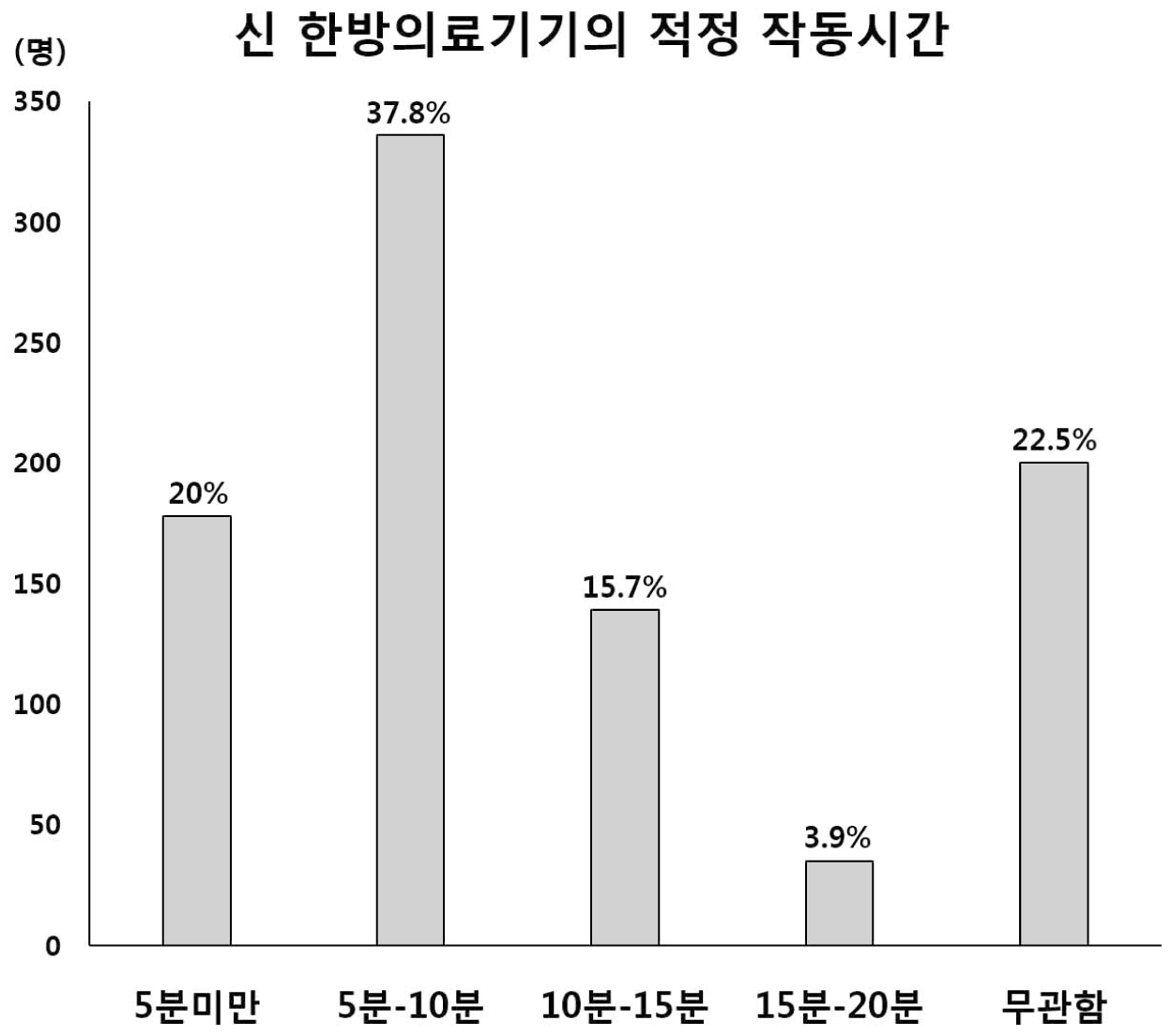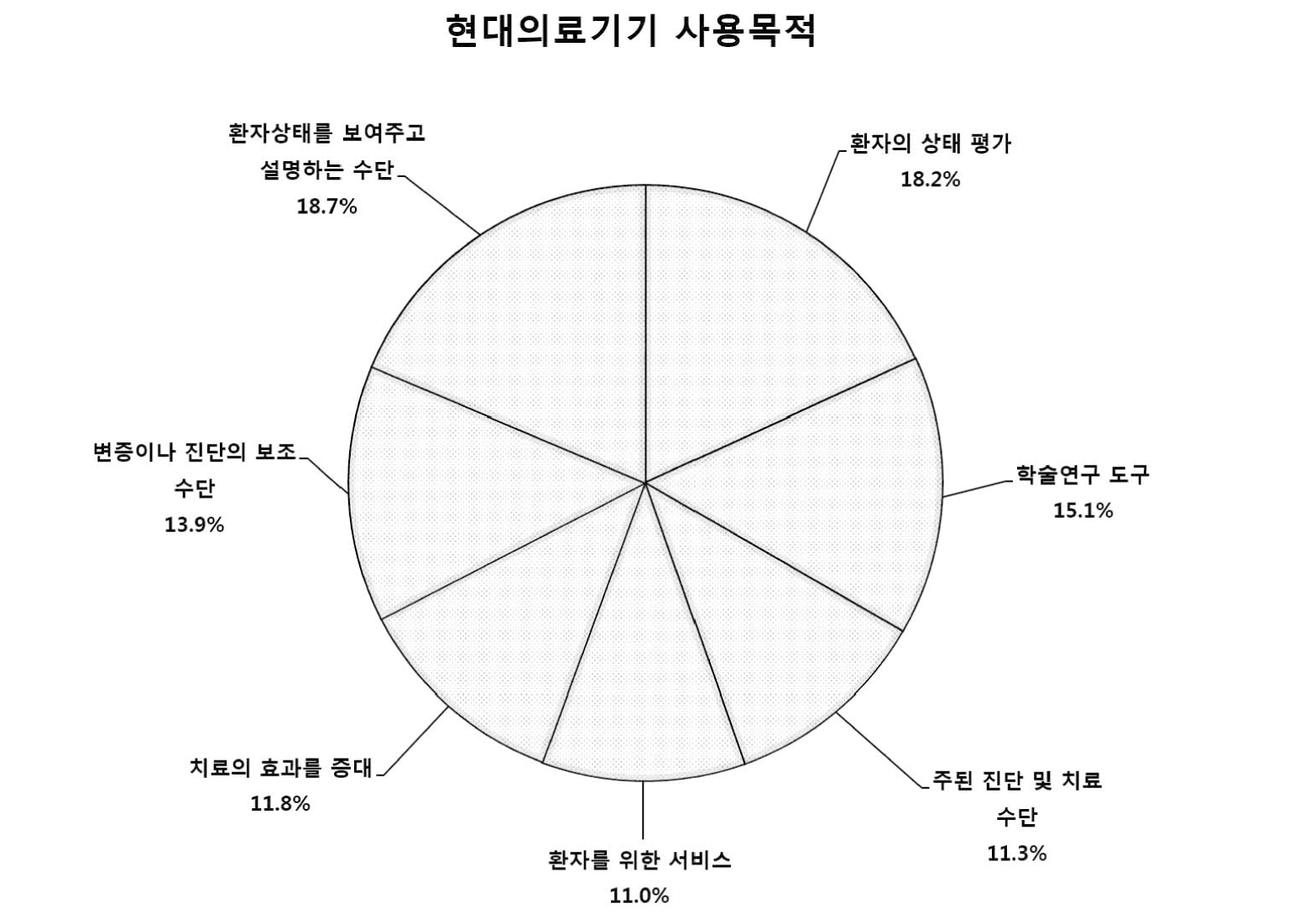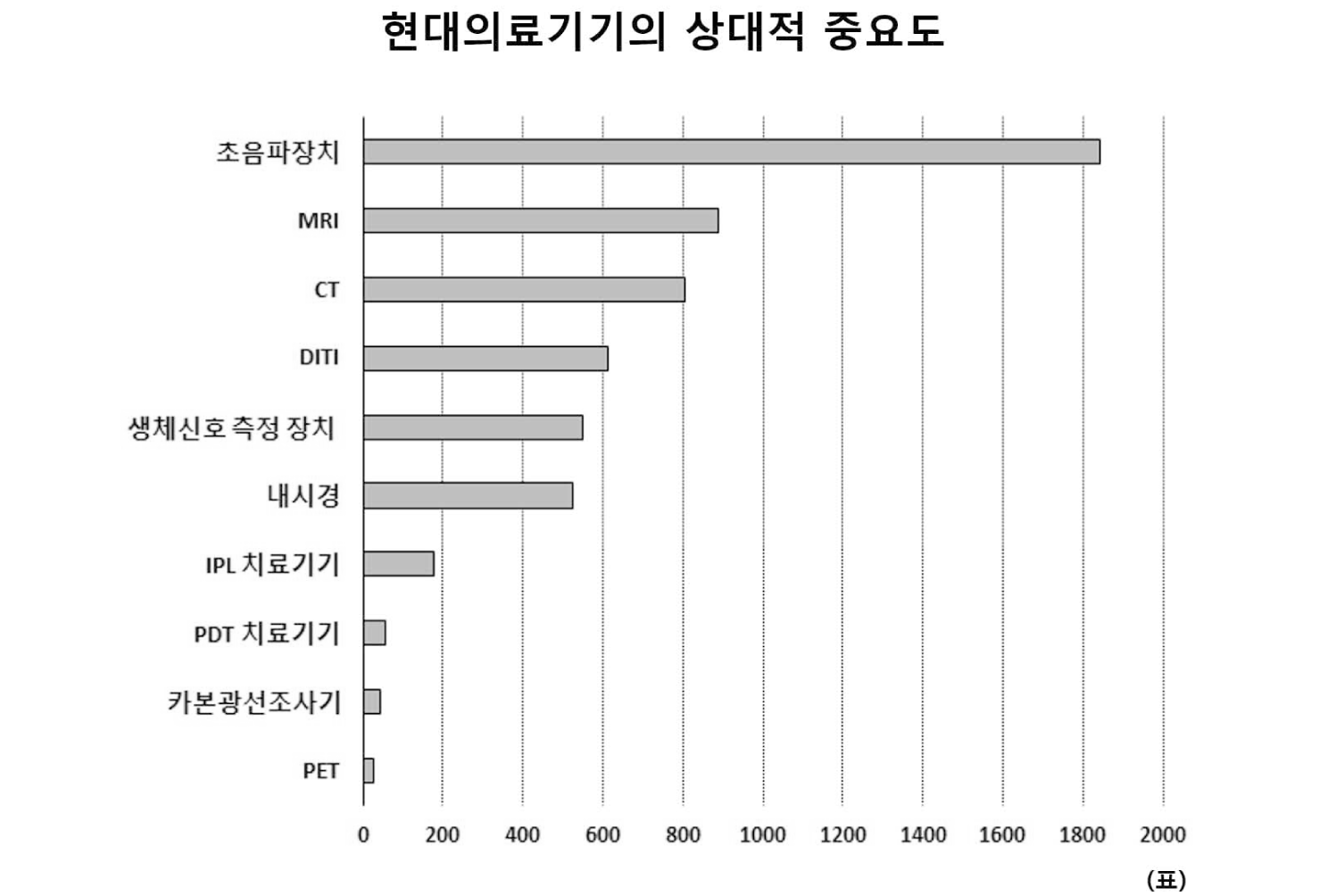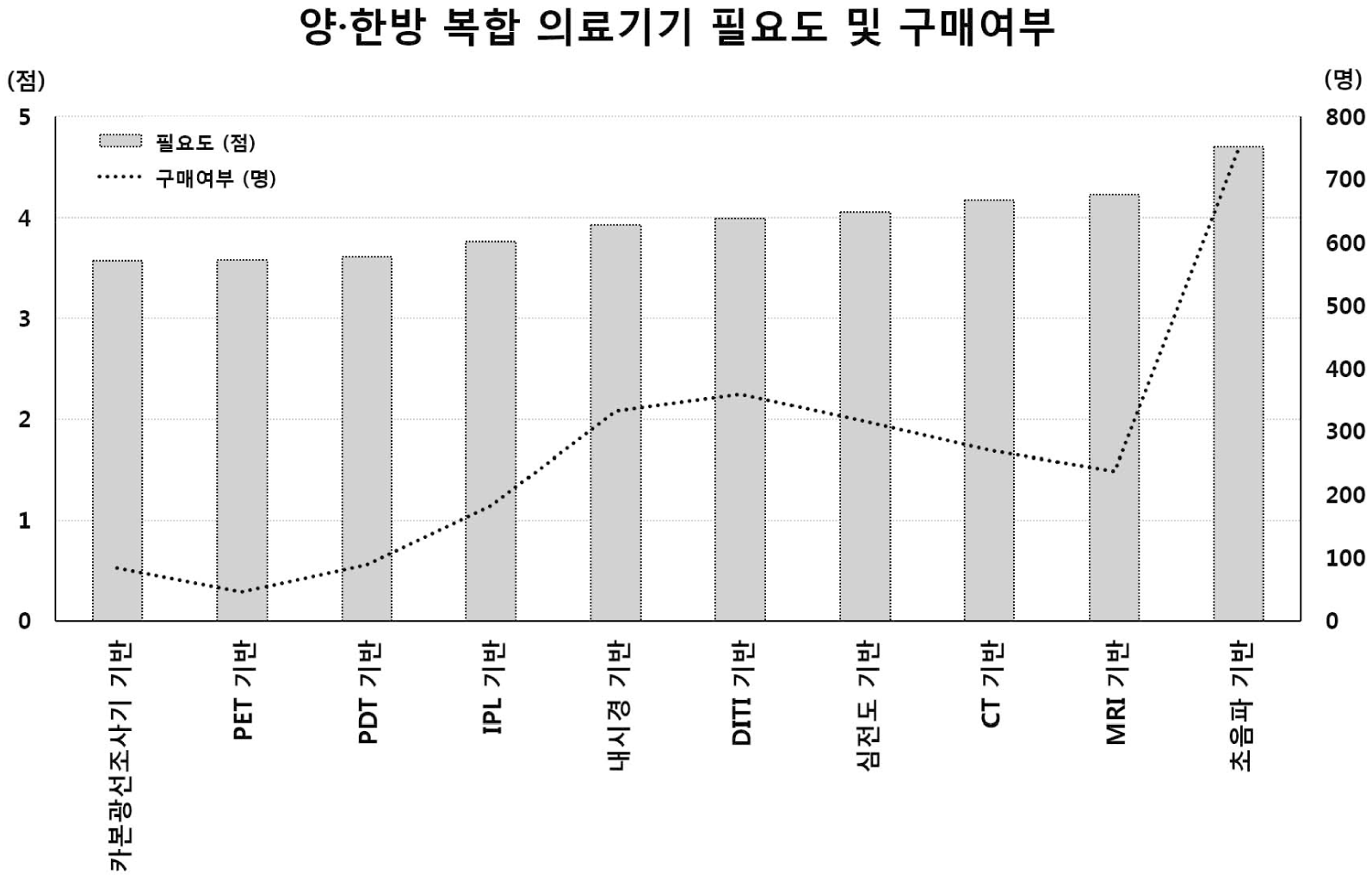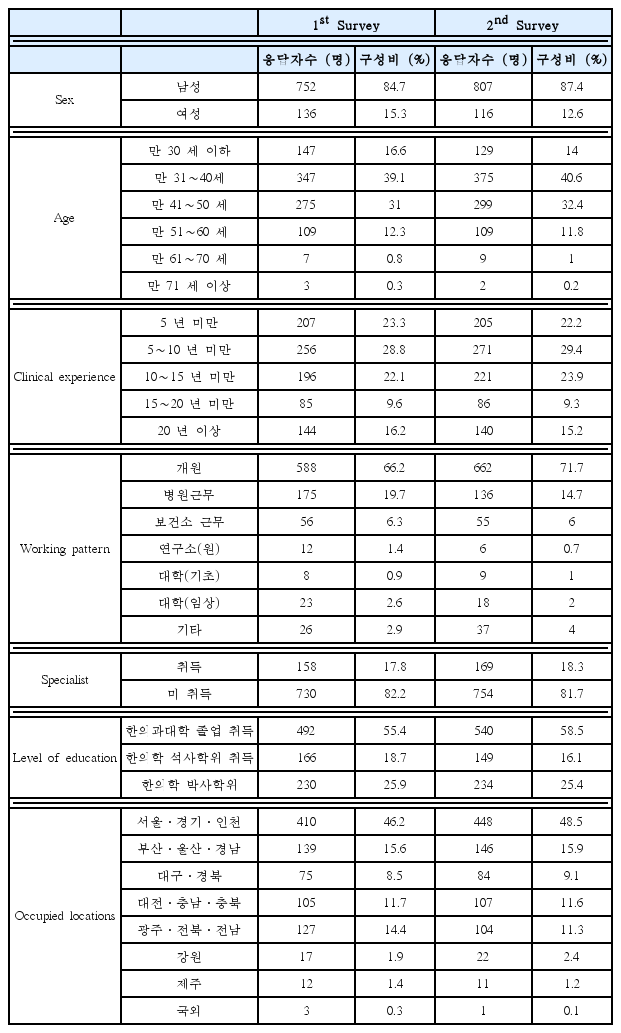Survey of Demand for Medical Devices in Korean Medicine
Article information
Abstract
Objectives:
The purpose of this survey was to investigate the need for new medical devices based on opinions of members of the Korean medical society.
Methods:
We distributed two independent questionnaires sequentially over two-week intervals to 16,510 doctors via the Korean Medical Society, and received replies from 888 and 928 doctors, respectively. The survey was carried out through a web-based questionnaire system. The first questionnaire focused on demand for new diagnostic and therapeutic medical devices that are specific for Korean medicine (KM). In contrast, the second questionnaire focused on demand for new hybrid medical devices which are useful both in Western medicine (WM) and KM.
Results:
In purchase intention of Korean medical devices (KMDs), demand for diagnostic devices was greater than for therapeutic ones. Among diagnostic devices, the purchase intention of ‘imaging devices’ ranked the highest and was followed by ‘musculoskeletal diagnostic devices’. Among therapeutic KMDs, the purchase intention of ‘musculoskeletal treatment devices’ ranked the highest, followed by ‘cranial nerve rehabilitation devices’. In the purchase intention of hybrid medical devices that can be used both in WM and KM, ‘ultrasonic-based medical device’ ranked the highest, followed by ‘MRI-based medical device’.
Conclusions:
There is increasing demand for clinically useful medical devices among Korean medical doctors. Within demand for new devices, hybrid devices that can be used in both WM and KM were most strongly desired. This survey will be useful in establishing strategic plans for the development of medical devices in KM.
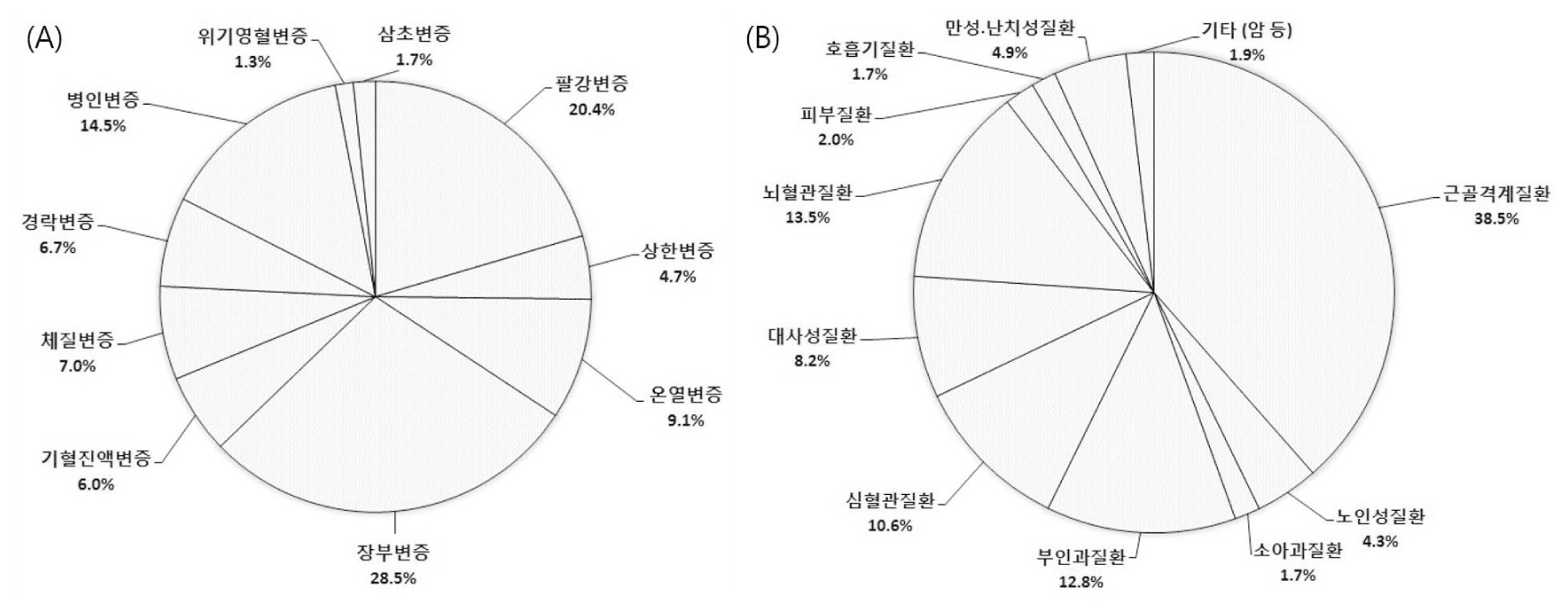
Usage for pattern identification and disease specific uses of medical devices developed for the Western medicine in KM
